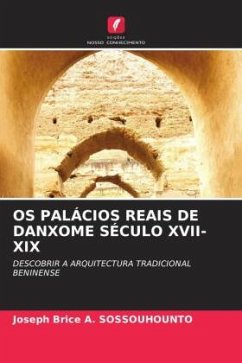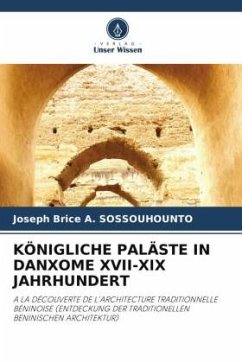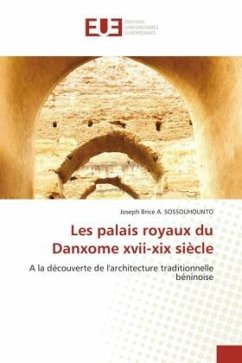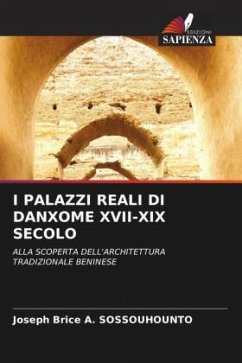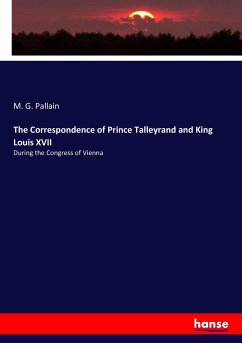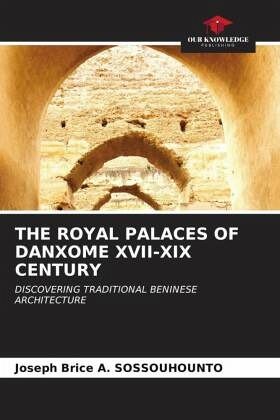
THE ROYAL PALACES OF DANXOME XVII-XIX CENTURY
DISCOVERING TRADITIONAL BENINESE ARCHITECTURE
Versandkostenfrei!
Versandfertig in 6-10 Tagen
40,99 €
inkl. MwSt.

PAYBACK Punkte
20 °P sammeln!
The Danxomè kingdom, like all other pre-colonial kingdoms, has also known the phenomenon of the royal palace. But, in its case, it did not have a single one in which all the monarchs ruled the country. Danxoméan royalty, that of the Aladaxonu, developed a veritable palace civilization within its territory. This civilization took the form of some thirty palaces and royal residences, most of which are nothing more than ruins today. Generally located in the center of the city, royal palaces were the most permanent elements of the pre-colonial urban landscape, and were the hallmarks of the centr...
The Danxomè kingdom, like all other pre-colonial kingdoms, has also known the phenomenon of the royal palace. But, in its case, it did not have a single one in which all the monarchs ruled the country. Danxoméan royalty, that of the Aladaxonu, developed a veritable palace civilization within its territory. This civilization took the form of some thirty palaces and royal residences, most of which are nothing more than ruins today. Generally located in the center of the city, royal palaces were the most permanent elements of the pre-colonial urban landscape, and were the hallmarks of the centralized political organization of certain monarchic entities. This permanence is still evident today, in the case of some, in the majestic palatial ruins on the one hand and their architectural forms on the other. The Honmè, for example, the royal palace in the Ajatado cultural area, was the most grandiose manifestation of traditional culture, the revelation of a certain mastery of the art of construction translating the spatio-temporal vision of power.



